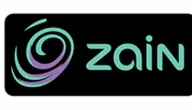- Related
- A Visitor’s Guide to Customs and Traditions in Kuwait
- Strategic Pricing Models: Maximizing Profit in Kuwait
- Omni-Channel Marketing: Creating Seamless Experiences
- Best Content Marketing Strategies to Engage Kuwaiti Audiences in 2025
- Leave Salary Calculation in Kuwait (2025 Guide): Accurate, Legal & Easy to Understand
- Commercial Dispute Resolution in Kuwait: Strategies for Success
Small and Medium Enterprises (SMEs) form the backbone of Kuwait’s economy, contributing significantly to its growth and development. However, for these businesses to thrive, access to finance is paramount. In this article, we will explore the various SME financing options available in Kuwait, shedding light on the intricacies and advantages of each.
Table of Contents
Traditional Bank Loans
The Basics
Traditional bank loans remain a popular choice for SMEs seeking financial support. Kuwaiti banks offer a range of loan products tailored to the unique needs of small and medium enterprises.
Pros and Cons
Advantages: Competitive interest rates, structured repayment plans, and a long-established reputation. Disadvantages: Stringent eligibility criteria, time-consuming approval processes, and collateral requirements.
Government Grants and Subsidies
Government Initiatives
Kuwait’s government actively supports SMEs through grants and subsidies, aiming to stimulate economic growth and job creation.
Pros and Cons
Advantages: Non-repayable funds, financial incentives, and strategic support from government agencies.
Disadvantages: Limited availability, strict eligibility criteria, and potential bureaucratic hurdles.
Venture Capital
The Startup Advantage
Venture capital has gained prominence in Kuwait’s entrepreneurial landscape, attracting investors eager to support innovative SMEs.
Pros and Cons
Advantages: Capital infusion without debt, mentorship opportunities, and access to a vast network. Disadvantages: Equity dilution, loss of control, and a focus on high-growth potential ventures.
Peer-to-Peer Lending
The Democratisation of Finance
Peer-to-peer lending platforms provide SMEs with an alternative funding source, connecting them directly with individual lenders.
Pros and Cons
Advantages: Quick approval processes, flexibility in loan terms, and diverse funding sources. Disadvantages: Higher interest rates, potential for unregulated platforms, and limited availability.
Islamic Financing
Sharia-Compliant Options
Islamic financing adheres to Sharia principles, offering SMEs an ethical and interest-free alternative.
Pros and Cons
Advantages: Ethical financing, flexibility in structures, and shared risk.
Disadvantages: Limited availability, complex structures, and potential for higher upfront costs.
Trade Credit
B2B Collaboration
Trade credit involves suppliers extending credit terms to SMEs, fostering long-term business relationships.
Pros and Cons
Advantages: Convenient financing, based on trust, and potential for extended payment terms. Disadvantages: Limited to supplier relationships, potential strain on partnerships, and dependency risks.
Invoice Financing
Getting Paid Faster
Invoice financing enables SMEs to leverage their accounts receivable, providing immediate access to funds tied up in unpaid invoices.
Pros and Cons
Advantages: Improved cash flow, quick access to funds, and reduced reliance on traditional loans. Disadvantages: Fees and interest charges, potential strain on client relationships, and eligibility criteria.
Microfinance
Bridging the Gap
Microfinance institutions offer smaller loan amounts to micro-enterprises, addressing the specific needs of this segment.
Pros and Cons
Advantages: Accessibility, simplified application processes, and tailored financial solutions. Disadvantages: Limited funding amounts, potentially higher interest rates, and a focus on micro-enterprises.
Crowdfunding
Community Support
Crowdfunding platforms enable SMEs to raise capital from a large number of individuals, tapping into the power of community support.
Pros and Cons
Advantages: Diverse funding sources, potential for increased brand visibility, and community engagement.
Disadvantages: Not guaranteed funding, time-consuming campaign management, and platform fees.
Equipment Financing
Unlocking Growth
Equipment financing allows SMEs to acquire necessary machinery or technology without a substantial upfront investment, fostering operational efficiency.
Pros and Cons
Advantages: Access to advanced equipment, preservation of working capital, and tax benefits. Disadvantages: Asset depreciation, potential for higher overall costs, and eligibility criteria.
Angel Investors
Personal Investment
Angel investors are affluent individuals who provide capital in exchange for ownership equity or convertible debt, offering SMEs not just funds but also valuable expertise.
Pros and Cons
Advantages: Expert guidance, flexible terms, and a potential for mentorship. Disadvantages: Equity dilution, loss of control, and limited availability.
Export Financing
Breaking Barriers
For SMEs engaged in international trade, export financing offers support through government-backed programs, facilitating expansion into global markets.
Pros and Cons
Advantages: Access to global markets, financial assistance in export endeavors, and reduced risk. Disadvantages: Compliance complexities, eligibility requirements, and potential delays.
Can SME Financing Options Help Ease the Process of Starting a New Business in Kuwait in 2024?
SME financing options can significantly ease the challenges of starting a business in kuwait in 2024. Access to affordable loans, grants, and investment opportunities allows entrepreneurs to focus on growth while minimizing financial barriers. Improved access to capital encourages innovation, helping new ventures succeed in a competitive market.
Line of Credit
Dynamic Financial Support
A line of credit provides SMEs with a revolving credit limit, allowing them to borrow funds as needed, offering flexibility for ongoing operational requirements.
Pros and Cons
Advantages: Flexibility in fund utilization, lower interest on used funds, and quick access to cash. Disadvantages: Interest on unused funds, potential for high-interest rates, and periodic reassessment.
In the ever-evolving landscape of SME financing in Kuwait, these additional options provide entrepreneurs with a broader spectrum of choices. Each avenue comes with its own intricacies, requiring careful consideration based on the unique needs and aspirations of the business. From equipment financing for tangible assets to the personalized support of angel investors, the key lies in aligning the financing option with the specific growth trajectory of the SME.
Expanding beyond the conventional financing methods allows SMEs in Kuwait to tap into diverse resources, ensuring they have the financial backing necessary to navigate challenges and seize opportunities. As entrepreneurs explore these additional avenues, they can empower their businesses, fostering resilience and contributing to the vibrancy of Kuwait’s SME ecosystem . Moreover, diversifying financial strategies, such as leveraging fintech solutions or engaging in strategic partnerships, ensures that businesses remain agile in an ever-evolving market. By accessing alternative funding sources and innovative financial tools, these initiatives play a crucial role in empowering Kuwaiti small businesses to thrive amid competition and uncertainty. Ultimately, this not only strengthens individual enterprises but also drives sustainable growth across the broader economy.
Conclusion
Kuwait offers a diverse range of financing options for SMEs, each with its own set of advantages and disadvantages. From traditional bank loans to innovative crowdfunding platforms, entrepreneurs must carefully evaluate their business needs and financial goals. Whether opting for government support, venture capital, or Sharia-compliant financing, SMEs in Kuwait have the tools to fuel their growth and contribute significantly to the nation’s economic landscape. The key lies in understanding the nuances of each option and making informed decisions that align with the unique characteristics of the business.
Navigating the maze of SME financing in Kuwait requires a strategic approach, but with the right choice, businesses can secure the financial support they need to thrive and prosper in this dynamic economy
 Join Kuwait Mart's WhatsApp Channel and be the first to know about new deals and products
Join Kuwait Mart's WhatsApp Channel and be the first to know about new deals and products













